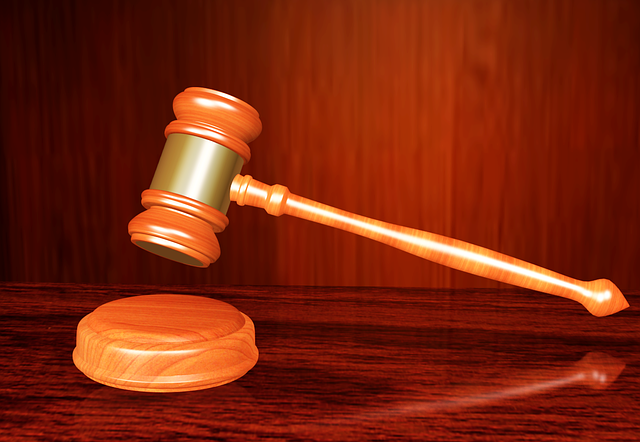Law office equipment, like digital voice recorders and speech recognition software, revolutionizes legal workflows by enhancing dictation accuracy and productivity. Modern solutions offer features like noise cancellation, cloud integration, and real-time transcription, catering to diverse practice needs. Selecting appropriate equipment requires understanding unique workflow demands, prioritizing accuracy, efficiency, durability, and ease of use. Proper implementation and training ensure seamless integration into daily routines, optimizing performance and output quality.
In today’s digital age, efficient dictation equipment is a game-changer for legal professionals. This article guides you through selecting the best tools for your law office needs. We explore the unique demands of legal work and how specialized equipment can streamline workflows. From understanding dictation requirements to choosing between various technologies, factors to consider, and implementing training for optimal use, this comprehensive guide ensures your practice benefits from advanced law office equipment.
- Understanding Dictation Needs in Law Offices
- Types of Dictation Equipment Available
- Factors to Consider When Choosing Equipment
- Implementing and Training for Efficient Use
Understanding Dictation Needs in Law Offices
In the fast-paced and detail-oriented environment of law offices, understanding dictation needs is paramount. Legal professionals rely on efficient communication tools to transcribe meetings, interviews, and legal research with precision and speed. Effective dictation equipment plays a crucial role in streamlining workflows and enhancing productivity. From digital voice recorders to advanced speech recognition software, the right tools can significantly improve accuracy, save time, and reduce administrative burdens.
Law office equipment designed for dictation must cater to the unique demands of legal work. Features like high-quality microphones, noise cancellation, and secure data storage are essential. Additionally, compatibility with case management software ensures seamless integration, enabling lawyers to efficiently organize and access transcribed content. By evaluating these needs, legal professionals can select dictation solutions that align with their specific requirements, ultimately contributing to more effective and efficient operations within the law office.
Types of Dictation Equipment Available
In today’s digital age, legal professionals have a variety of dictation equipment options available to enhance their workflow efficiency. Traditional devices include handheld and desktop dictaphones that capture audio recordings with precision. These tools are ideal for capturing interviews, meetings, or creating legal documents on-the-go. With advancements in technology, modern law office equipment now offers sophisticated features such as voice recognition software, cloud integration, and real-time transcription capabilities.
Dictation applications and software have become game changers in the legal field. These digital solutions allow professionals to dictate notes, create memos, and even draft legal documents directly into their preferred word processing program. Some software packages provide advanced functions like automatic punctuation, customizable hotkeys, and smart dictation suggestions, streamlining the documentation process. This evolution in law office equipment ensures that lawyers can work more efficiently, with greater accuracy and productivity.
Factors to Consider When Choosing Equipment
When selecting dictation equipment for a law office, several key factors come into play. Firstly, consider the specific needs and workflows within your practice. Different legal professionals have varying requirements—from trial lawyers needing robust, portable devices for court appearances to in-house counsel working on lengthy documents in an office setting. Understanding these nuances ensures you choose equipment that aligns with daily tasks.
Secondly, look into features that enhance accuracy and efficiency. This could include advanced noise cancellation for clear recordings, speech recognition software for seamless transcription, or integration options with existing case management systems. Additionally, think about durability and ease of use, especially if the devices will be shared among team members. Ultimately, investing in law office equipment that prioritizes these aspects can significantly streamline legal workflows.
Implementing and Training for Efficient Use
Implementing and training for efficient use is a critical step in selecting any dictation equipment for legal professionals. Once chosen, the technology should be seamlessly integrated into the workflow of the law office equipment. This involves ensuring all staff are adequately trained to operate the device effectively, from recording dictations to transcribing them accurately. Regular practice sessions can help users become proficient and comfortable with the system.
Moreover, providing clear guidelines and support resources will enable legal professionals to make the most of their new dictation equipment. Regular updates and maintenance checks should also be conducted to keep the technology functioning optimally. This proactive approach ensures that the dictation process becomes a seamless part of the daily routine in the law office, enhancing productivity and accuracy.
Selecting the right dictation equipment is a strategic move for legal professionals, aiming to streamline workflows in their busy law offices. By understanding specific needs, exploring diverse options, and considering key factors, attorneys can make informed choices that enhance productivity. Investing in high-quality equipment tailored to legal practices ensures efficient document creation and improves overall office operations, ultimately contributing to the success of any legal practice. With the right tools, law office equipment becomes a powerful asset, enabling professionals to focus on what matters most: delivering exceptional legal services.
